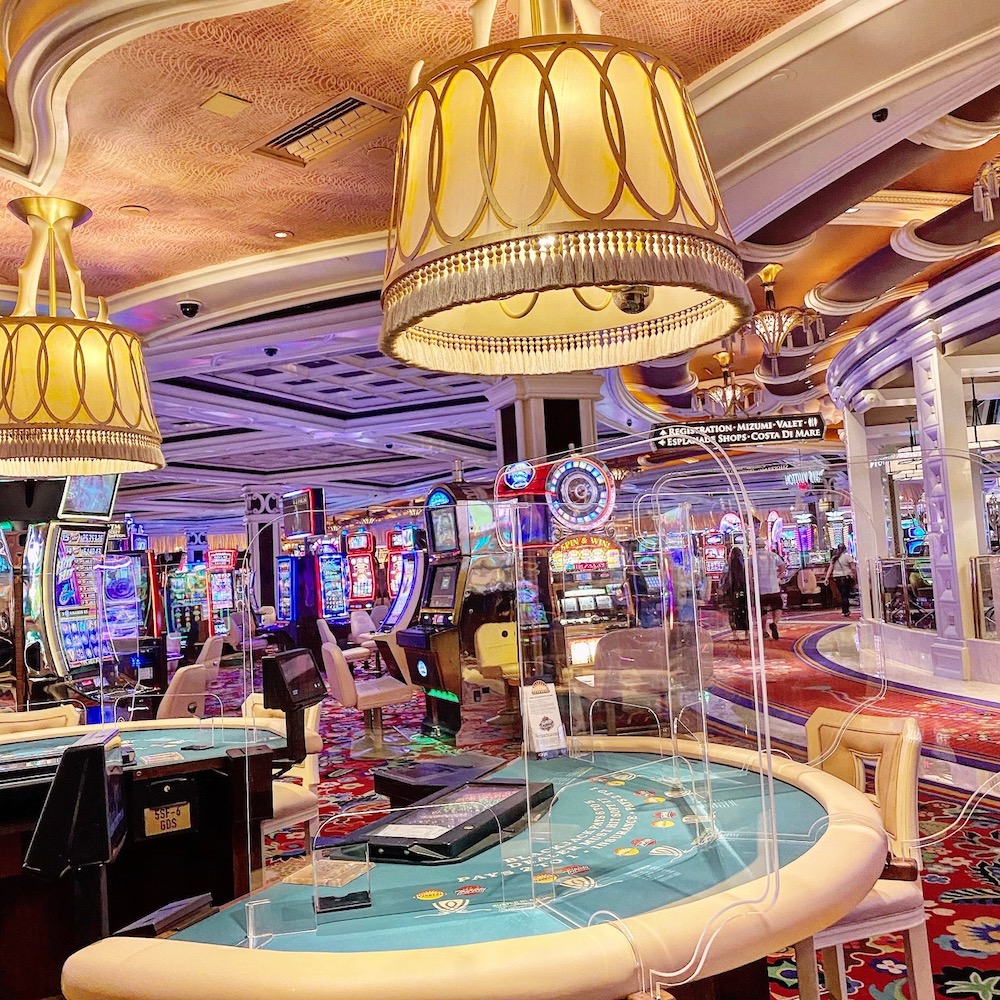Casinos are opening at full capacity across the country. That’s great with one exception for budget-conscious gamblers. The table limits at many casinos are higher than usual. The lowest minimum bet for blackjack was $25 or more on a recent visit to the Vegas Strip and downtown Las Vegas.
These weren’t high-limit blackjack games. This wasn’t just for a traditional blackjack game. Bally’s and the Cosmopolitan both had 6:5 Bonus Bet Blackjack for $25 per hand. During peak hours all table game limits at the Cosmopolitan had a $50 minimum bet.
Since this visit, the limits have been lower for some games. However, not every casino has lower limits yet.
Many casinos bumped table limits when there were fewer players due to social distancing. The limits remain high as players really want to play blackjack as they head to casinos for the first time in a while.
Pent-up demand is a real thing and the tables for just about all casino games were packed during my midweek visit. Yes – even that $50 Bonus Bet blackjack game had a full table.
The $25 blackjack games are probably a bit pricey for most red chip ($5) players that don’t like to cross the $15 threshold. It’s understandable as the worst-case scenario of losing a bankroll can approach quicker when playing higher limits.
For what it’s worth, electronic blackjack games still have lower limits if you absolutely must play blackjack in the casino but don’t want to extend your budget.
Playing within a budget is an important way to avoid going to a bad place. I have personal strategies that work for me but may not be right for everyone. I have different ways to account for business and personal finances thanks to years of accounting.
Before diving feet first into a higher limit blackjack game, you might want to look at the difference in the expected loss of different games. Sometimes seeing the dollar amount is the best way to see if you should or shouldn’t play a game.
Expected Loss
All casino games with a house edge have an “expected loss” since over time the casino will win a certain amount of money. On the other side of the fence, the expected loss shows how much a player will lose over time.
Expected loss information should provide some budgetary assistance for anyone not familiar with the differences between blackjack games and wager sizes. The expected loss should be done with an open mind.
This isn’t exactly how much money will be lost every session. No gambling math works that way. This is the expected loss averaged over time.
I’m going to show an example of the expected loss per hour at different denominations for both 3:2 and 6:5 blackjack games. Extrapolate the information and you’ll be able to see the difference between playing lower and higher stakes.
3:2 blackjack with a house edge of 0.48%. The expected loss is with five players at the table with everyone playing 70 hands per hour.
- $10 bet expected loss: $3
- $15 bet expected loss: $5
- $25 bet expected loss: $8
6:5 blackjack with a house edge of 1.66%. The expected loss is with five players at the table with everyone playing 70 hands per hour.
- $10 bet expected loss: $12
- $15 bet expected loss: $17
- $25 bet expected loss: $29
Obviously, the expected loss increases the higher the limits. I’m using just an hour since that’s an easy number to work from. This math is useful for players planning on four sessions of three hours or 1 session per day for one hour.
The expected loss in the 3:2 game is almost 3 times as much when playing $25 instead of $10. The difference is more than double when playing the 6:5 blackjack game.
Again, these are average losses so any single session could be better or worse. This is just a guide so you can see the difference in how much a player is expected to lose based on the denomination of the bets.
In addition to wanting to show the expected value, I chose these games to show the difference between playing a good 3:2 game and a typical 6:5 game.

